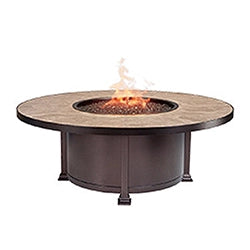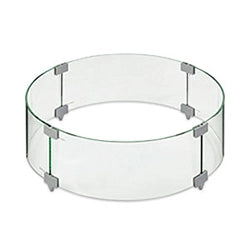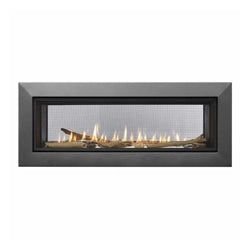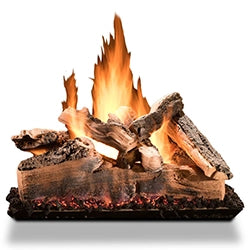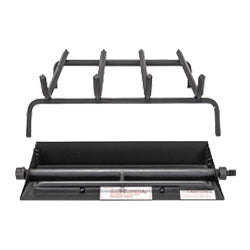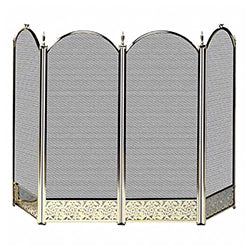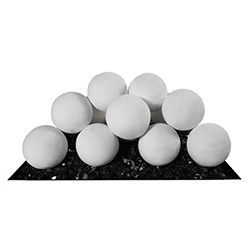Your table top will require different care instructions/guidelines based upon the materials your top is comprised of. Certain materials require more maintenance than others. Below you'll find care details on different materials your table top may be made of.
Porcelain
Porcelain is a hard, fine-grained material that consists essentially of kaolin, quartz, and feldspar. It is compacted and generally fired in kilns at high temperatures greater than 2000 degrees Fahrenheit. Porcelain is relatively non-porous and is a very durable material. If properly maintained, it will last forever. Most porcelain table tops on our fire tables have already been sealed. Maintaining the sealer on the table is very important and requires regular cleaning. Clean tops with a soft, clean cloth (one that won’t bleed color) or sponge. Use warm clean water and mild dish soap. Remember, you are not cleaning the porcelain; you are cleaning the sealer layer on the porcelain. Do not use petroleum-based or abrasive cleaners. Rinse with plenty of clean water to remove any soap residue. Dry thoroughly after cleaning to prevent water spots. Even if your tabletop has been sealed, spills need to be cleaned immediately to prevent staining or damage to the tabletop. Always blot spills with a clean, soft cloth. Wiping could spread the spill. Repeat blotting with the dry area of cloth until the spill is totally absorbed. Rinse with clean, warm water and wipe dry.
Clay
Clay is a material that consists of fine-grained, phyllosilicate minerals from the earth. The clay is pressed into molds, allowed to air dry, and then fired in kilns. After the tile is fired, a glaze is hand applied and the tiles are re-fired at temperatures exceeding 1000 degrees Fahrenheit. The top of the glazed tile is relatively non-porous and clay tile is a very durable material. If properly maintained, it will last forever. The clay top on your table has been sealed, and maintaining the sealer on the table is very important and requires regular cleaning. Clean tops with a soft, clean cloth (one that won’t bleed color) or sponge. Use warm clean water and mild dish soap. Remember, you are not cleaning the clay; you are cleaning the sealer layer on the clay. Do not use petroleum-based or abrasive cleaners. Rinse with plenty of clean water to remove any soap residue. Dry thoroughly after cleaning to prevent water spots. Even if your tabletop has been sealed, spills need to be cleaned immediately to prevent staining or damaged to the tabletop. Always blot spills with a clean, soft cloth. Wiping could spread the spill. Repeat blotting with the dry area of the cloth until the spill is totally absorbed. Rinse with clean, warm water and wipe dry.
Stone
Stone is a durable yet porous material that will last forever if properly maintained. Your stone tabletop has been sealed using a special treatment to resist moisture penetration and staining. The sealer has a very long life, but does require proper cleaning and maintenance to maintain the integrity of the tabletop. Acidic compounds found in many foods such as tomato products, mustard, fruit juices, wines, colas, vinegar, and coffee can leave permanent stains in the stone material. The porous nature of stone also leaves it susceptible to heat retention. Care should be exercised when handling stone that has been subjected to lengthy exposure to the sun, to prevent bodily harm.
Glass
Use mild soap and water or commercially available glass cleaners. Do not use cleansers or abrasive materials.







